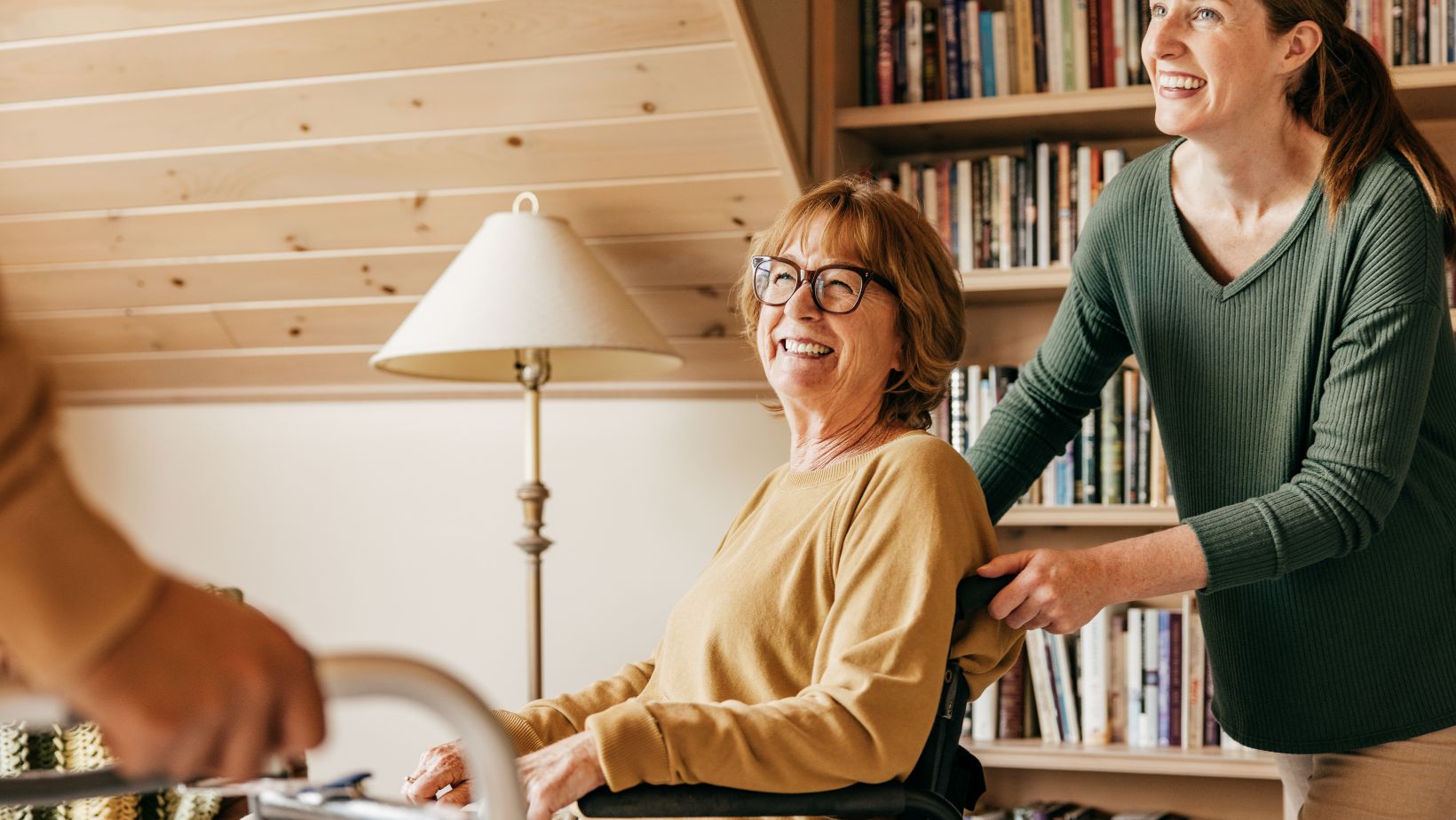Last Updated on May 29, 2025 by pm_author_91ksj
As our loved ones age, ensuring they live with dignity, comfort, and happiness becomes a top priority. Supporting aging family members to live their best lives requires a compassionate blend of emotional care, practical assistance, and the thoughtful use of modern technology that promotes independence and well-being. With today’s innovations and some intentional lifestyle adjustments, families can help seniors stay healthy, connected, and engaged in ways that enrich their daily lives.
The Importance of Healthy Habits for Aging Well
Healthy habits are the cornerstone of aging gracefully. They improve physical health, cognitive function, and emotional balance, all of which contribute to a better quality of life.
- Physical Activity: Research consistently shows that staying active slows down many effects of aging. For seniors, this might mean low-impact exercises such as walking, swimming, yoga, or chair-based routines. Regular movement helps maintain muscle strength, joint flexibility, and cardiovascular health. Encourage your family members to find activities they enjoy, which increases the likelihood they’ll stick with them.
- Nutrition: Proper nutrition becomes even more critical with age. Metabolism slows down, and nutrient absorption changes, so meals rich in vitamins, minerals, protein, and fiber support energy levels and disease prevention. Cooking meals together or helping create simple meal plans can improve diet quality and foster bonding.
- Mental Engagement: The brain benefits from constant stimulation. Encouraging seniors to engage in puzzles, reading, creative hobbies, or even learning new technology can help preserve memory and problem-solving skills. Mental engagement also offers a sense of purpose and accomplishment.
- Social Connections: Loneliness and social isolation are serious risks for older adults and can lead to depression and physical decline. Encouraging regular interaction with family, friends, or community groups can help maintain emotional health. Even virtual connections through video calls or social media can be meaningful.
How Technology Enhances Healthy Living and Independence
Technology has advanced rapidly, offering many tools designed specifically to support the aging population’s unique needs. When used appropriately, these technologies help aging adults maintain autonomy while providing caregivers peace of mind.
- Medication Management: Forgetting to take medications can lead to serious health complications. Many seniors juggle multiple prescriptions, making their schedules complicated. Smartphone apps like Wellth can provide timely reminders for medication doses, refills, and doctor appointments. Some apps even allow family members or caregivers to track adherence remotely, enabling proactive intervention if a dose is missed.
- Habit-Tracking and Wellness Apps: To encourage positive lifestyle changes, habit-tracking apps can monitor daily goals such as hydration, exercise, and sleep. These apps often use gentle reminders, progress charts, and motivational messages to help users stay consistent. By reinforcing healthy habits, these tools can reduce risks of chronic illnesses and enhance overall vitality.
- Telemedicine: Accessing healthcare can be challenging for those with mobility issues or who live far from providers. Telemedicine allows seniors to consult with doctors, nutritionists, or therapists from home. This convenience reduces missed appointments, speeds up care, and minimizes exposure to illnesses.
- Emergency Alert Systems: Wearable emergency devices or home systems with SOS buttons provide immediate access to help during falls or medical crises. These systems often include GPS tracking, so caregivers can locate loved ones if they wander or get lost.
- Cognitive and Social Engagement Tools: Many apps and platforms are designed to support cognitive exercises or enable social interaction. Video calling apps, senior-friendly tablets, and games designed to stimulate the mind can reduce feelings of isolation and promote mental health.
Practical Ways to Create a Supportive Home Environment
Helping aging family members live their best lives also means ensuring their environment supports safety, comfort, and independence.
- Safety Modifications: Preventing accidents is crucial. Simple upgrades like installing grab bars in bathrooms, improving lighting (especially in hallways and staircases), using non-slip mats, and removing trip hazards can make a huge difference.
- Comfort and Accessibility: Consider the furniture arrangement to make rooms easier to navigate. Chairs with good back support, adjustable beds, and accessible storage for essentials reduce strain and encourage independence.
- Smart Home Devices: Voice-activated assistants can help seniors control lights, thermostats, and even make calls without needing to move or operate complex devices. Motion sensors can alert caregivers if unusual inactivity is detected.
- Routine and Organization: Establishing a daily routine can provide structure and reduce confusion or anxiety. Using calendars, checklists, or smart reminders can assist in maintaining consistent daily activities.
Supporting Emotional Well-being and Autonomy
Beyond physical and practical support, emotional care is fundamental to helping aging loved ones thrive.
- Active Listening and Respect: Regularly engage in open, empathetic conversations. Listening attentively and respecting their preferences fosters trust and makes seniors feel valued.
- Encouraging Decision-Making: Involve them in choices about their care, living arrangements, and lifestyle whenever possible. Autonomy enhances self-esteem and motivation.
- Promoting Purpose and Joy: Encourage hobbies, volunteering, or learning opportunities that give life meaning. Celebrating achievements and milestones, no matter how small, also boosts morale.
- Recognizing Mental Health Needs: Aging can bring challenges such as depression or anxiety. Be attentive to changes in mood or behavior and seek professional support when necessary.
Balancing Support and Independence with Technology
One of the greatest challenges for families is finding the right balance between providing necessary care and promoting independence. Technology offers valuable assistance by:
- Reducing the burden on caregivers through automated reminders and remote monitoring.
- Empowering seniors to take charge of their own health and routines.
- Increasing safety without infringing on privacy or freedom.
Choosing tools that are user-friendly and tailored to individual needs increases acceptance and success. Introducing technology gradually and providing training or support can help overcome resistance or frustration.
Final Thoughts
Helping aging family members live their best lives is a rewarding and ongoing process. Combining emotional support, practical care strategies, and thoughtful use of technology creates an environment where seniors can enjoy health, independence, and happiness. By encouraging healthy habits, making homes safer, fostering social connections, and embracing modern tools designed to support aging, families can ensure their loved ones live with dignity and joy well into their later years.





